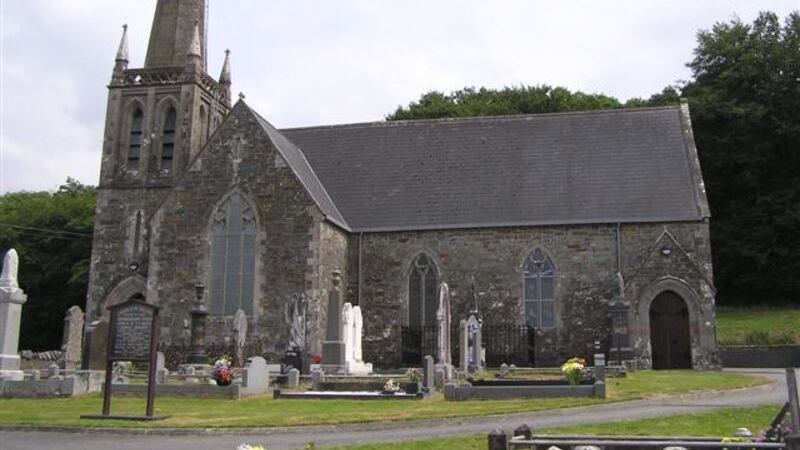DINNSEANCHAS
Dunnamanagh - Donemana - Dún na Manach - fort of the monks
The townland of Dunnamanagh (also known as Donemana) in Co. Tyrone derives from Dún na Manach ‘fort of the monks’.
It seems to be have been named by association with a monastery, the site of which may be occupied by the ruins of the ancient parish church of Donaghedy which are located in a graveyard in the townland of Bunowen (Bun Abhann ‘base of the river’).
There are other examples of Bunowen in Westmeath, Mayo and Galway. The village which has adopted the name Dunnamanagh was founded by Sir James Drummon in the early seventeenth century in the course of the plantation of Ulster.
The townland of Rathnamanagh in Co. Laois has similar origins, deriving from Ráth na Manach ‘ringfort of the monks’. Cill na Manach ‘church of the monks’ is widespread; it appears as Kilnamanagh in Cork, Dublin, Wexford, Galway, Roscommon and Sligo.
For more information on Irish place-names, go to @placenamesni on twitter or www.placenamesni.org
SEANFHOCAL
Is fearr moill ná deabhadh.
A pause is better than haste.
The modern Irish has evolved from Ferr drub déne and it comes from Bríathra Flainn Fína maic Ossu, a collection of proverbs and sayings in old Irish, proverbs which contain only three words.
The Flann Fína mac Ossu after whom the collection is named is also known as Aldfrith mac Oswy, a king of Nortumbria born of an Irish mother, and who died in 705.
Yes, the Irish we speak today is a descendent of that which Flann spoke.
There are around 250 proverbs in the collection and some have been collected by Dennis King and can be found at http://www.smo.uhi.ac.uk/sengoidelc/donncha/gaois
